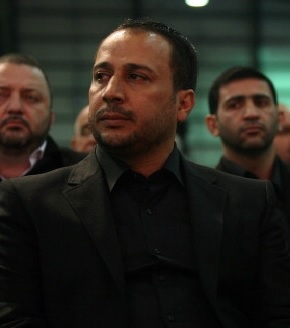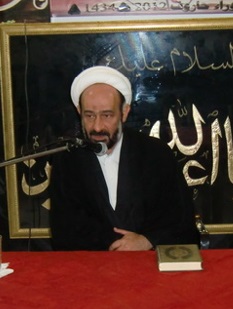The Treasury Department today designated four members of Hezbollah's leadership who are "responsible for operations throughout the Middle East." The designations, Treasury said, further expose Iranian-backed Hezbollah's "pernicious activities that reach beyond the borders of Lebanon."
The four members of Hezbollah sanctioned by Treasury today are: Khalil Harb, Muhammad Kawtharani, Muhammad Yusuf Ahmad Mansur, and Muhammad Qabalan.
Khalil Harb
According to the Treasury Department's press release, Harb was a deputy commander in Hezbollah's central military unit in southern Lebanon between 1988 and 1992. Between 1992 and 1994, he was the lead commander of the unit. And "[f]rom 1994 to 1997, Harb served as the commander of Hezbollah's central military operations," Treasury said.
"By 2000, Harb supervised Hezbollah military operations inside Israel, Jordan, Cyprus, and Turkey," Treasury further stated. Harb, who led a special Hezbollah unit during the 2006 war with Israel, was also said to have been involved in aiding in the smuggling of operatives from Hamas and Palestinian Islamic Jihad from Syria into the West Bank via Jordan. "In March 2006, Harb served as Hezbollah's chief of military liaison with the Palestinian factions and Iran," Treasury stated.
In early 2007, Harb became the head of Hezbollah's Unit 1800, which, according to Treasury, is dedicated to "supporting Palestinian militants and conducting Hizballah operations in the countries surrounding Israel."
In this position, Harb "travelled to Iran for meetings regarding coordination between Hezbollah, Iran, and the Palestinians," Treasury stated. In 2010, Harb was involved in planning attacks against Israeli officials in response to the killing of Hezbollah commander Imad Mughniyah in February 2008. In the same year, he was also made a "special advisor" to Hezbollah Secretary General Hassan Nasrallah.
As of 2012, Harb was involved in Hezbollah's activities in Yemen. "Since the summer of 2012, Harb has been involved in the movement of large amounts of currency to Yemen, through Saudi Arabia and the U.A.E.," Treasury said.
Muhammad Kawtharani was identified by Treasury as "the individual in charge of Hezbollah's Iraq activities." According to Treasury, Kawtharani, a member of the terror group's Political Council, was involved in providing "training, funding, political, and logistical support to Iraqi Shi'a insurgent groups." During the course of the Syrian civil war, Kawtharani has helped facilitate the movement of "fighters to Syria to support the Assad regime."
Treasury added that Kawtharani was involved in securing the release of Hezbollah's Ali Musa Daqduq, who was responsible for a number of attacks on coalition forces in Iraq. Daqduq, a Hezbollah commander, was himself designated by the Treasury Department in November 2012.
Muhammad Yusuf Ahmad Mansur

Muhammad Yusuf Ahmad Mansur, a Hezbollah member since at least 1986, joined Hezbollah's Unit 1800 around 2004. In 2008, Mansur headed a Hezbollah cell in Egypt that sought to target tourist destinations. In 2009, Egyptian authorities apprehended Mansur and others members of the cell, who later alleged that they were tortured in prison. Although Mansur received a 15-year sentence in 2010 for his activities, he escaped from an Egyptian prison in 2011 and returned to Lebanon, where he has been seen at Hezbollah rallies in Beirut.
Muhammad Qabalan
Like Mansur, Muhammad Qabalan was heavily involved in Hezbollah's Unit 1800. According to Treasury, Qabalan "was serving as the Lebanon-based head" of the Egypt cell led by Mansur. In April 2010, Qabalan was sentenced in absentia to life imprisonment for his involvement in the cell. According to Treasury, since late 2011, Qabalan has "worked in a separate Hizballah covert unit operating in the Middle East."
Today's designations come just over two months after Treasury designated four Lebanese men who operate for Hezbollah in four West African nations.
